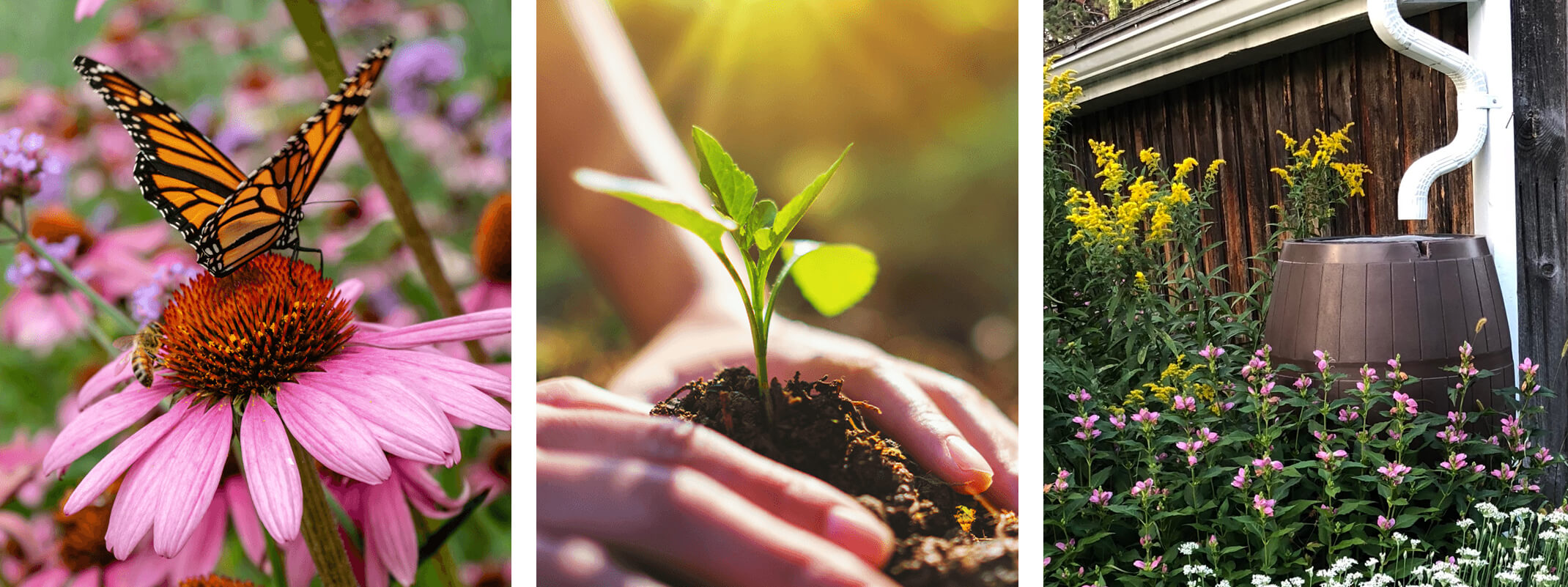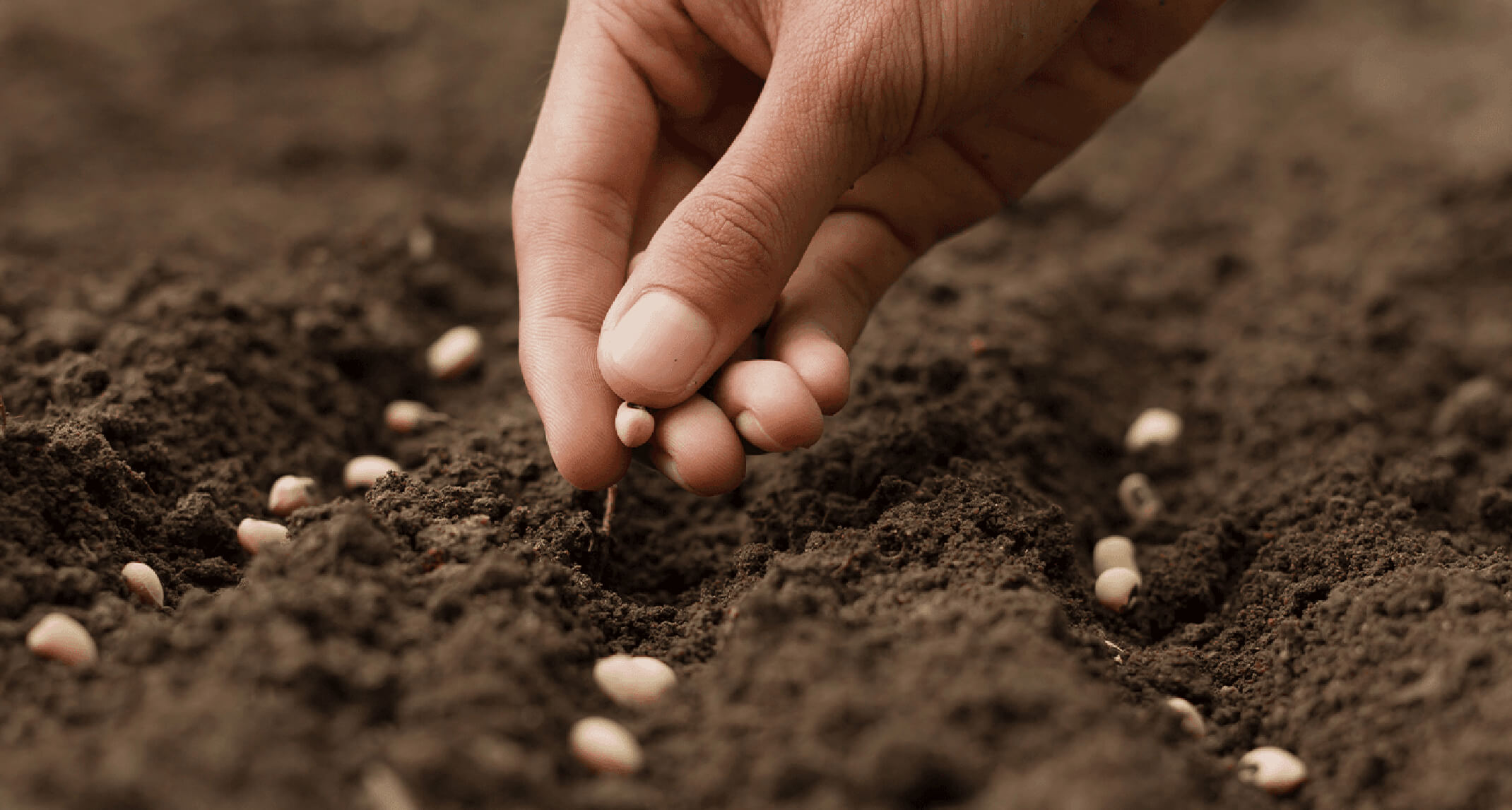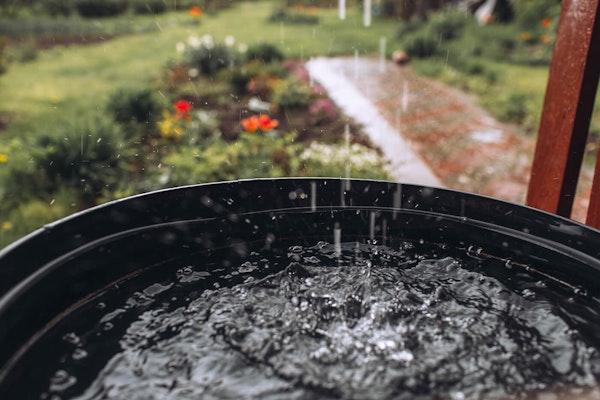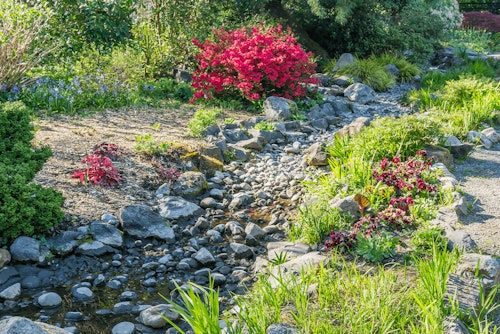 Back to the Be Inspired Blog
Back to the Be Inspired Blog

How To Plan an Organic Landscape
Today’s changing climate continues to render many traditional landscaping practices obsolete. Rather than working alongside nature and using its diversity to enrich the quality of your garden, these methods often create scenarios that pit you against it. Just when you think you’ve solved your landscaping problem, mother nature throws another climate-change-induced weather event your way, and you’re back to the drawing board.
A growing movement towards sustainable gardening practices in landscaping reflects a universal need to adapt to today’s shifting and unpredictable climate. Despite common misconceptions, growing and maintaining an organic garden is no more complicated than that of a traditional garden. All it takes is a more calculated plan, from which you will benefit in the end.
Incorporating organic landscaping products, conserving water, and implementing fire and flood prevention methods are all ways you can begin creating a more productive, healthier, and low-maintenance garden. Let mother nature take the lead and help you make friends with your garden again. She’s got this.
 Why Grow Organically?
Why Grow Organically?
Organic landscaping is about a cohesive and thorough understanding of your local soil, the plants adapted to those soils, and the natural cycles used to sustain them in your climate. From saving your money to reducing soil and water pollution, there are many benefits of organic landscaping to protect your garden against climate change. Natural and organic compounds are completely biodegradable and will protect you from harming the ecosystem of your backyard. Root growth will improve as roots become more fibrous as natural ecosystems revitalize, resulting in a healthier and more aesthetically pleasing garden.
Conserving Water in Your Landscaping Routine

Reducing water consumption in your organic garden is especially important during significant climate events like increased heat waves and droughts. Different conservation methods, such as modifying your watering schedule, installing rain barrels, and implementing drip irrigation, will help you reduce your eco-footprint and your hydro bill. Moreover, mulching enriches the organic soil in your garden with density and moisture, mitigating the need for chemical fertilizers that require large amounts of energy to produce. Practicing basic landscaping principles like looking after your soil, watering at the right time, choosing native plants, observing drainage patterns, and identifying water waste are habits you can adopt that will make all the difference.
Fire and Flood Prevention in Landscaping
Using nature as your blueprint when landscaping and putting the correct prevention methods in place will help you in drought, flood, and fire. Placement is a key factor in preventing fires from spreading through your garden, making it crucial to arrange your platings with a decent amount of space between them. Removing dead materials and selecting organic shrubs that are proven to stand decently against fire, such as buckwheat, lemonade berry, oak, and woolly blue curl, will also better ensure the safety of your organic garden.
No plant is entirely fire-resistant, and every climate is different depending on the geographic location. It is best to choose organic plants that are higher in moisture content and are native to your local area, as these will take longer to burn and reduce the spread of a fire.
Flood Prevention

Being intentional about how you space out your landscape and what plant species you include will have an impact on the success of flood-proofing your organic garden. Technical landscaping methods like building swales, planting rain gardens, diverting rain spouts, and installing rain barriers will also help you redirect water and avoid floods from occurring in your garden. Consider contacting a landscape architect to plan out what flood prevention techniques work best for your particular landscape and climate circumstances. Your nearest garden center can be a place of valuable information.
Climate change requires smart gardening, and we are here to help. Check out our blog for more tips on using nature as your blueprint, and start growing an organic landscape today! For organic landscaping solutions near you, visit us at SummerWinds!

